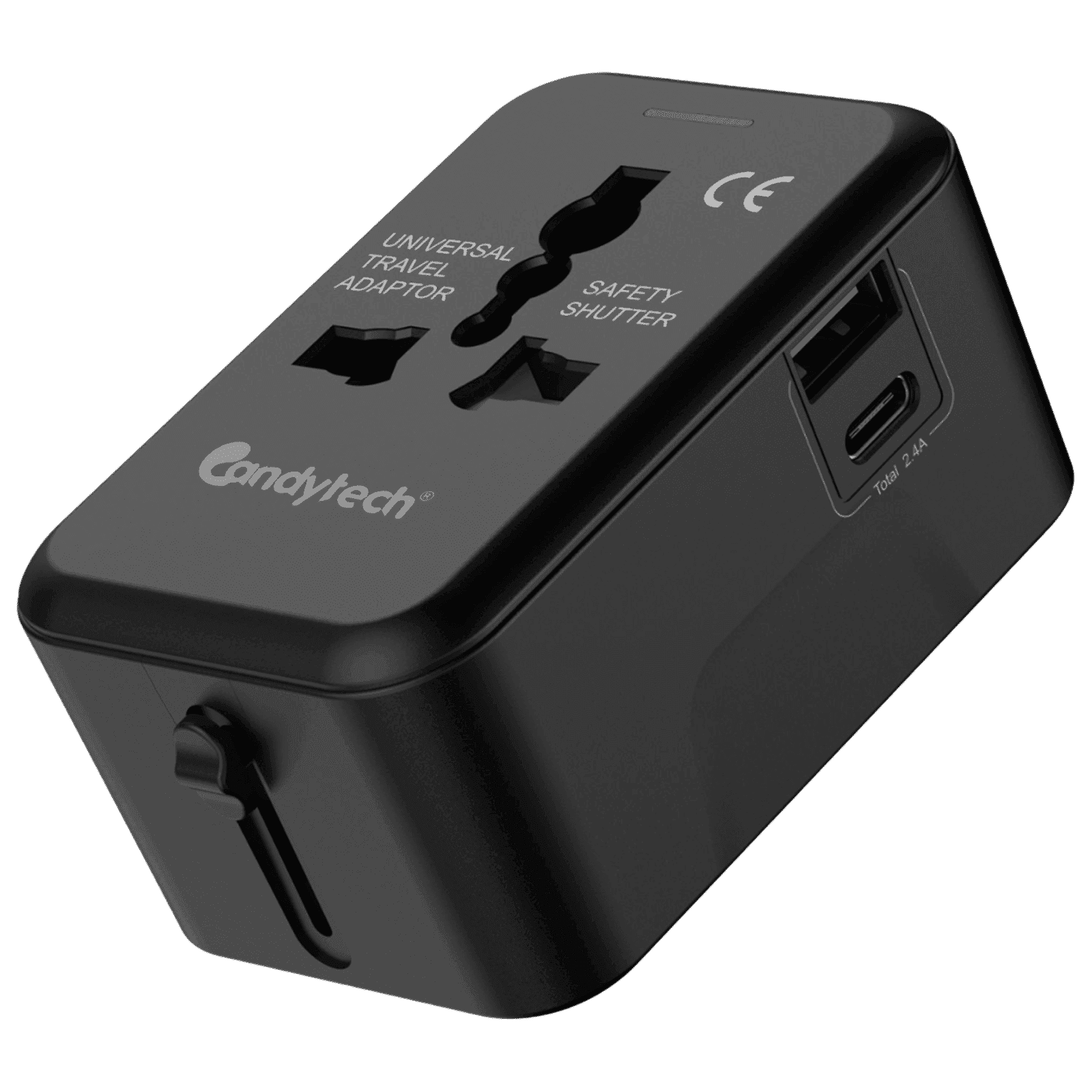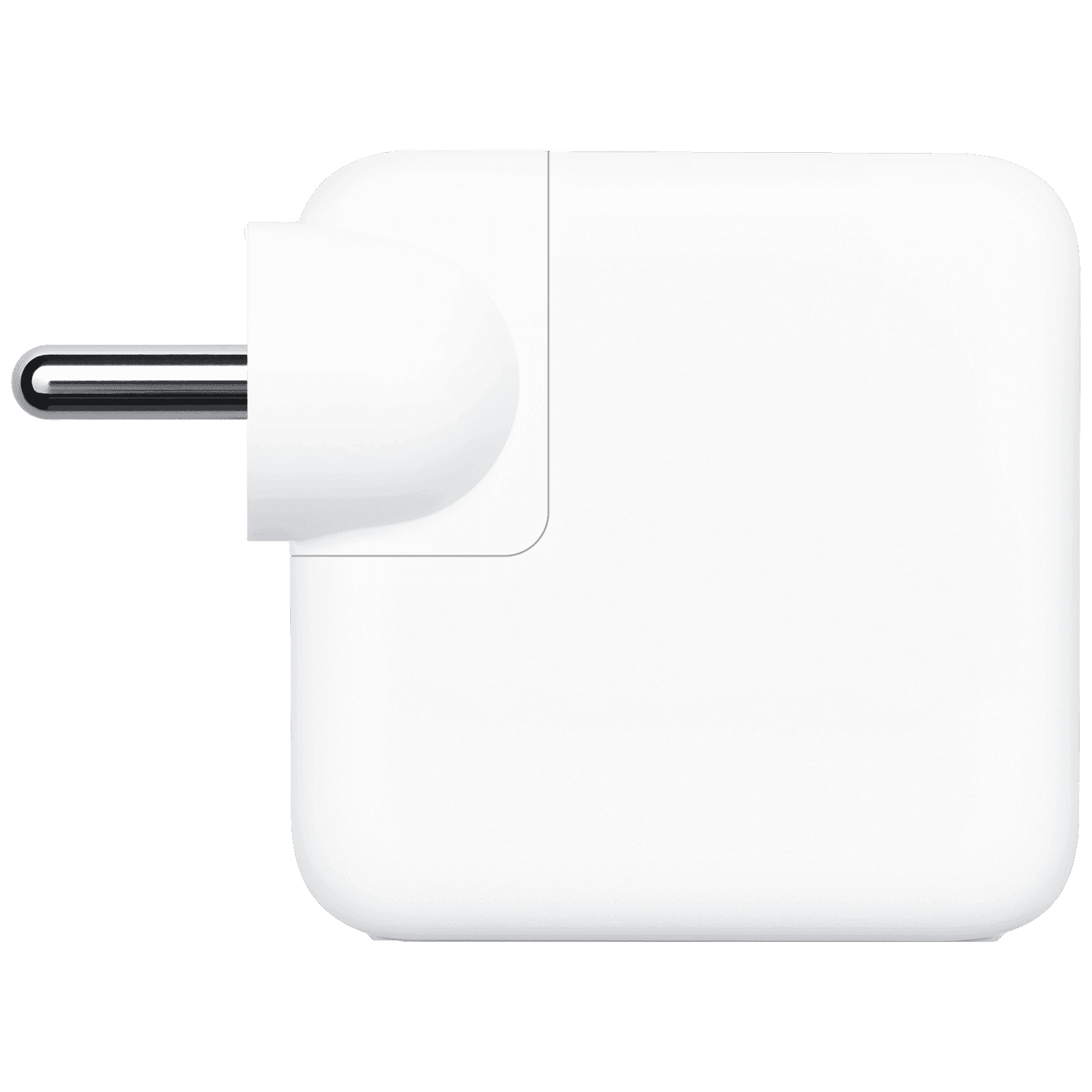%20(Presentation)%20(1600%20x%20600%20px)(73)-40dbda35-57a2-4a29-9154-47bed5023908.webp&w=3840&q=75)
Consumer Electronics
•05 min read

Buy Candytech Travel Adapter (With Type C and Type A USB Port, CT-C12, Black) online at best prices from Croma. Check product details, reviews & more. Shop now!
In today's fast-paced world, seamless connectivity between devices is essential. Many of us face the challenge of connecting our newer USB Type-C devices with older Micro USB peripherals. This blog post explores expert insights into choosing the right Type C to Micro USB converter, ensuring smooth data transfers and efficient charging. Discover how shopping on Tata Neu not only connects you to the latest tech but also rewards you with NeuCoins and rapid, same-day Express Delivery for orders placed before the cut-off. You will learn about the key differences between these two technologies, the different types of converters available, and what to consider when making a purchase for your specific needs.
USB Type-C has grown in popularity due to its modern design and advanced capabilities. It offers faster data transfer speeds and improved charging efficiency. Many of today's gadgets, from smartphones to laptops, use this cutting-edge connector. With its reversible design, it eliminates the common frustration of trying to plug in a cable the wrong way. Its growing adoption highlights the desire for smarter and more convenient technology in our daily lives. According to current industry standards, USB Type-C is widely regarded as the future of connectivity.
Micro USB was once the standard for many devices and remains in use in a number of older gadgets and accessories. Although it has served us well over the years, its limitations become evident when compared to the impressive performance of USB Type-C. Micro USB cannot match Type-C's speed and efficiency in charging modern devices. Nonetheless, many accessories in households—such as portable speakers and older mobile devices—still rely on Micro USB connections. According to current industry standards, Micro USB is now considered a legacy connector for older devices.
The need for a Type C to Micro USB converter becomes clear when you have a mix of devices with different ports. This converter acts as a bridge, connecting tradition with modernity. Whether you need to transfer data or charge your device, having the right converter can save you time and frustration, ultimately ensuring that you experience hassle-free connectivity.
There are three main types of converters available for bridging the gap between USB Type-C and Micro USB devices. The USB Type C to Micro USB adapter is a simple solution that plugs into your device's USB-C port, allowing you to connect a Micro USB cable. A Micro USB to Type C cable offers a similar solution, with both connectors integrated into one seamless design. Finally, a USB C to Micro USB adapter plug is designed for ultra-portability, making it easy to carry in your bag for on-the-go connectivity.
Each option has its pros and cons. Adapters are typically more compact but may require the use of an additional cable. Cables provide an all-in-one solution but might be less flexible in terms of length or placement. Connector plugs offer versatility, particularly for those who value portability without compromising on functionality.
For those who require not just charging, but also data connectivity, converters with OTG (On-The-Go) functionality are available. These allow your device to function both as a host and a peripheral, making it easier to transfer data on the fly. Dedicated charging adapters focus on delivering a stable, efficient charge. For example, converters with OTG functionality ensure seamless data transfer between devices, while dedicated chargers prioritise power stability. Depending on your needs, selecting the right type can make a significant difference in performance.

Buy Apple MW2K3HN/A 35W Type C 2-Port Fast Charger (Adapter Only, White) online at best prices from Croma. Check product details, reviews & more. Shop now!
Before purchasing a converter, it is important to check compatibility with your devices. Whether you're connecting a smartphone, tablet, or accessory, ensuring that the converter works seamlessly with both USB Type C and Micro USB is essential. A good converter supports micro usb to type c compatibility, ensuring your devices interact flawlessly.
When it comes to build quality, look for converters that feature robust construction. Metal connectors and insulated, durable cables are key indicators of a quality product. Ensuring that your converter has adequate heat resistance is crucial, especially if you plan to use it for charging. This not only extends the life of the converter but also protects your devices from potential damage.
High performance is critical, particularly in terms of data transfer speeds and charging efficiency. A well-designed converter ensures that Type C to Micro USB data transfer happens swiftly and without significant energy loss. For those who frequently transfer large files or need rapid charging, performance should be a top consideration.
Choosing converters from trusted brands is always a good idea. Reputable manufacturers invest in research and quality control, ensuring that their products meet high standards. This approach is in line with Tata Neu’s mission to provide customers with products that deliver convenience and performance while building trust through innovative technology. With Tata Neu and its partner Croma, enjoy unmatched after-sales support and ZipCare services that ensure your devices remain at their best.
For users prioritising speed and efficiency, high-quality converters that offer fast data transfer are available in the market. These options not only facilitate quick file transfers, but they also enhance the overall user experience by minimising downtime.
If your focus is on charging your devices, durable and safe charging adapters are your best bet. These converters are engineered to provide stable power delivery, reducing the risk of overheating and ensuring that your devices charge at an optimal rate. Long-tail variants such as 'USB type c to micro usb adapter' or 'type c to micro usb charging adapter' can also be ideal solutions for meeting diverse needs.
For budget-conscious consumers, there are affordable yet reliable converters available. These products offer essential functionalities while honouring the trust you expect from quality connectivity solutions. It is entirely possible to enjoy the benefits of a quality converter without having to overspend.
When shopping for a converter, always be cautious of counterfeit products on the market. Check the packaging carefully, read genuine customer reviews, and look for certifications or other quality markers. Genuine products typically come from well-known brands that value customer trust and satisfaction.

Buy Apple USB Type C to USB Type A, VGA Port, Thunderbolt 3 USB C Multi-Port Adapter (Sync & Charge, White) online at best prices from Croma. Check product details, reviews & more. Shop now!
Insight Corner: The Hidden Benefits of Choosing the Right Converter
Did you know? Using a high-quality Type C to Micro USB converter can significantly reduce energy loss during charging, ensuring faster and more efficient power delivery. Plus, premium converters often include safeguards against overheating and short-circuiting, protecting your devices.
Setting up your converter is usually straightforward. Insert the USB-C end into your device, and connect the Micro USB end to your accessory or charger. This simple process ensures that you can quickly transition between different devices and enjoy uninterrupted functionality.
Occasionally, you might experience issues such as slow charging or data transfer errors. In these cases, ensure that the connection is secure and that your device is compatible with the converter. Simple troubleshooting steps, like disconnecting and reconnecting the device, can often resolve minor glitches related to micro usb to usb c compatibility. Additionally, check for device driver updates to address persistent issues.
To maximise the longevity of your converter, practice proper maintenance. Avoid overuse and store the converter in a safe, dry place when not in use. Regularly checking for wear and tear can help prevent potential damage. This care ensures that your converter remains a reliable accessory for both charging and data transfer needs over time.
Yes, you can convert USB-C to Micro USB using a Type C to Micro USB adapter, cable, or connector plug.
Simply insert the USB-C end of the adapter or cable into your device, then connect the Micro USB end to your accessory or charger.
Yes, specialised cables designed for connecting USB-C devices to Micro USB ports exist, serving both for charging and data transfer.
Yes, USB-C can be converted to USB using appropriate adapters or cables. However, this requires a different type of converter than those discussed here specifically for Micro USB devices.
Choosing the right Type C to Micro USB converter is essential for ensuring seamless connectivity, optimal performance, and long-term peace of mind. By focusing on critical considerations such as compatibility, build quality, and performance, you can make well-informed decisions that support your connectivity needs. Trusted brands and quality engineering will always play a vital role in this process, aligning with Tata Neu’s commitment to delivering a rewarding and reliable customer experience.